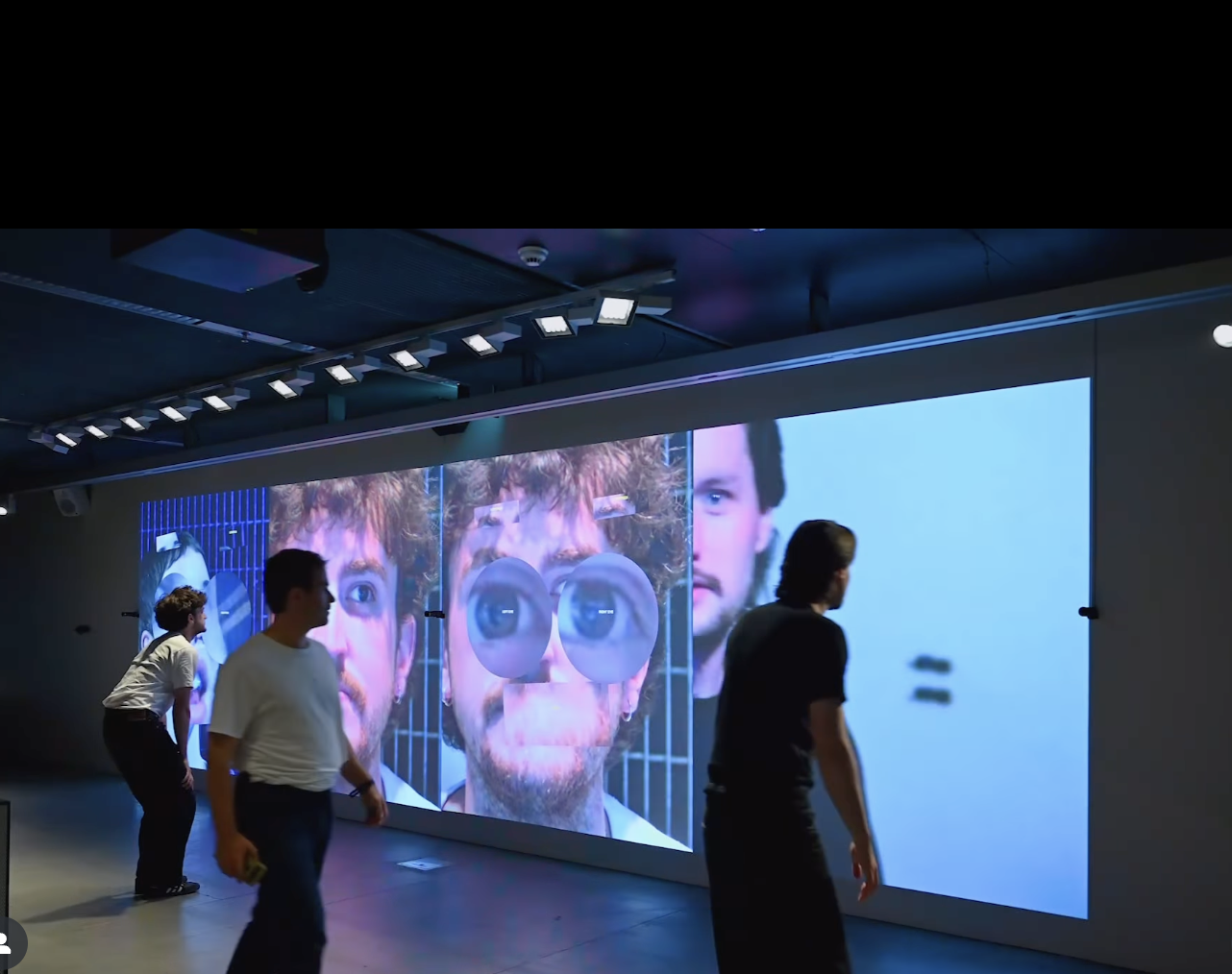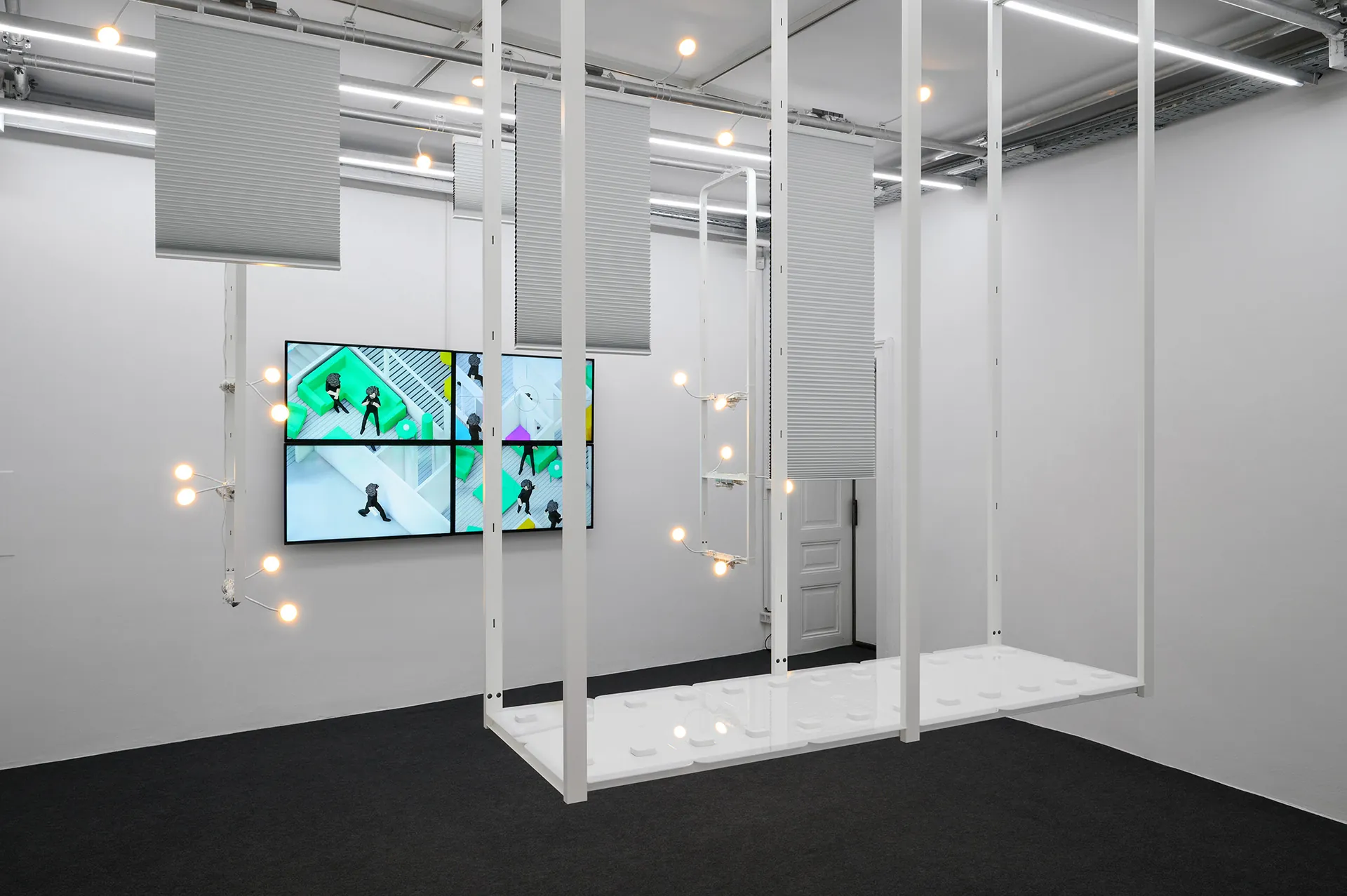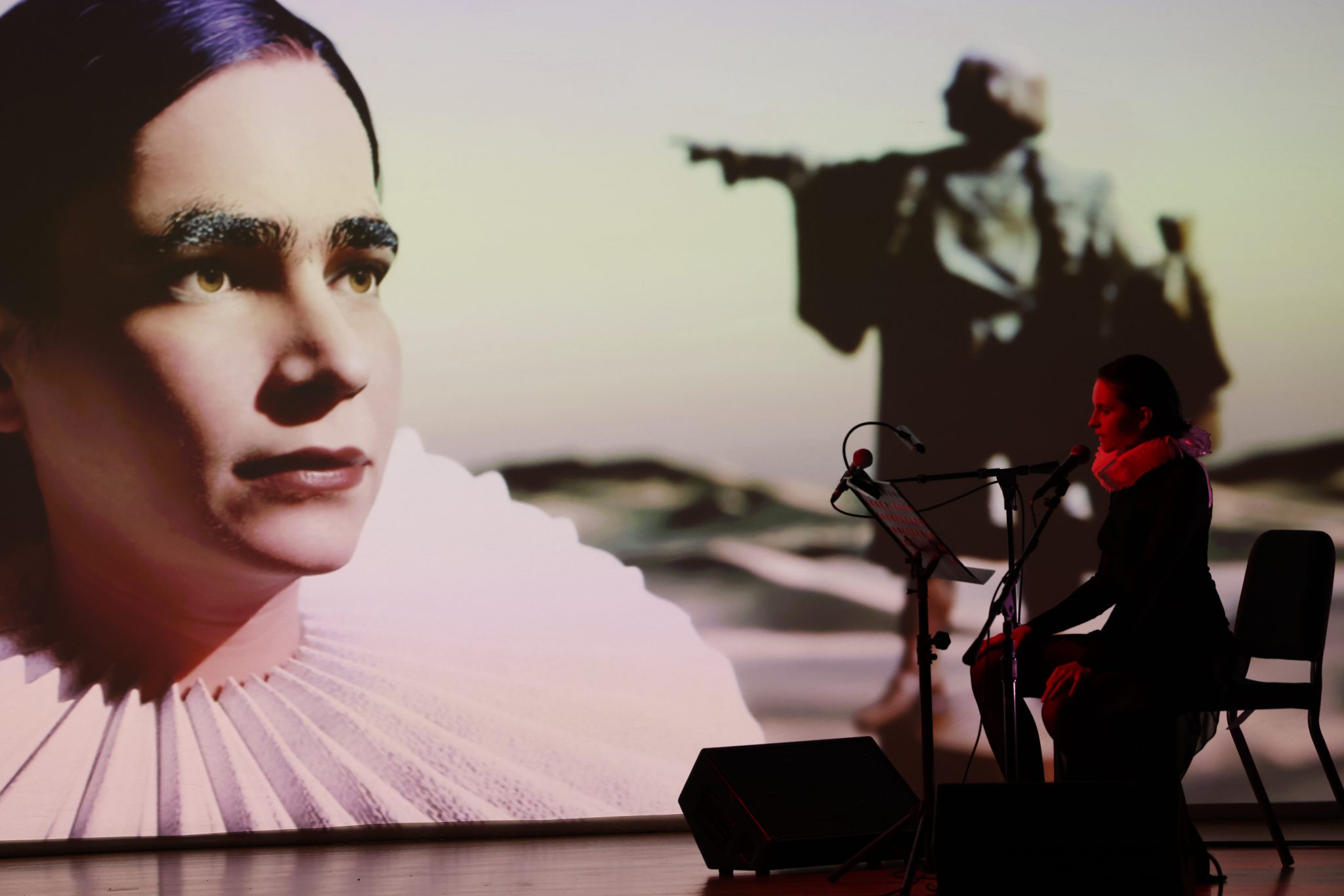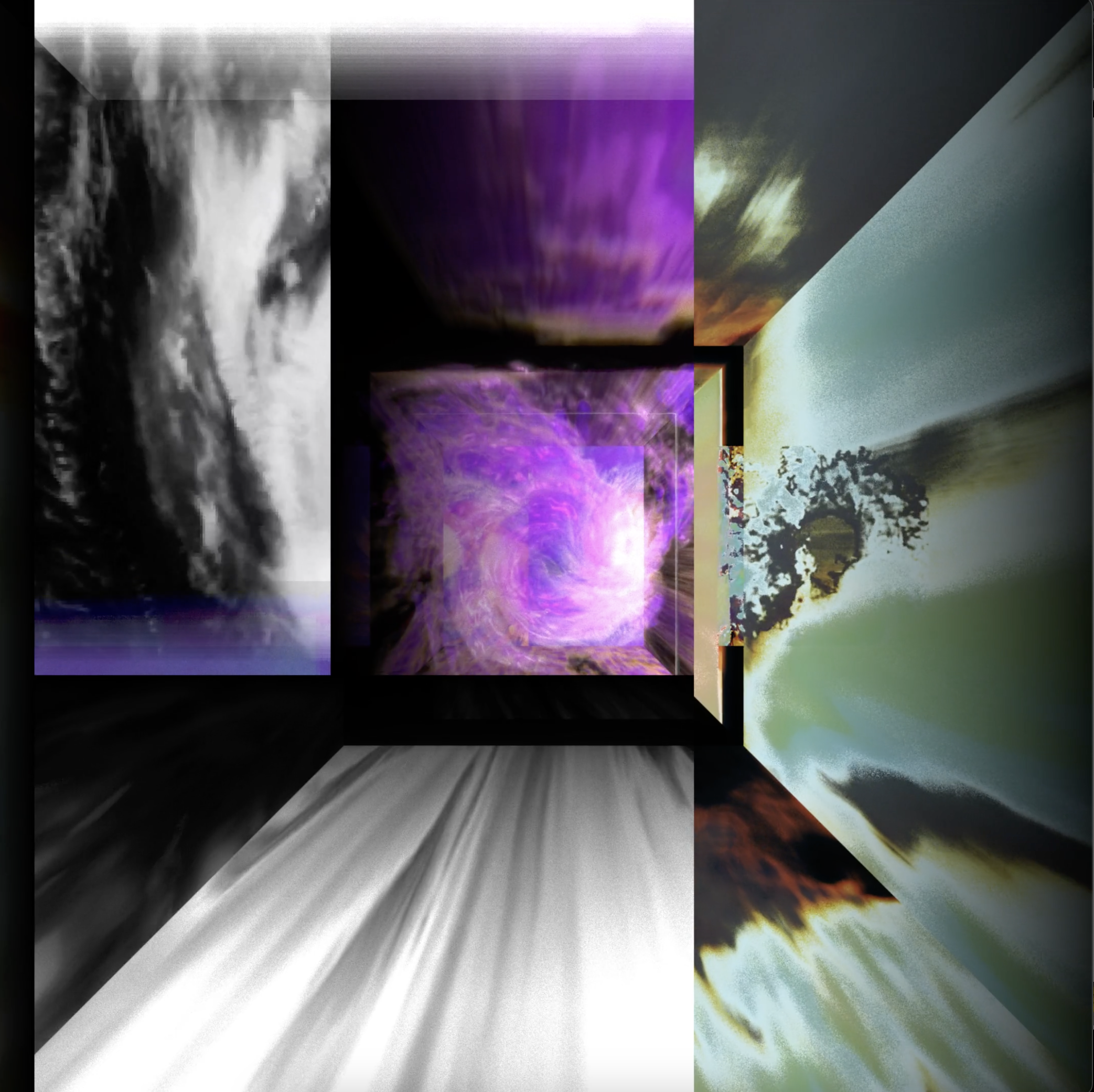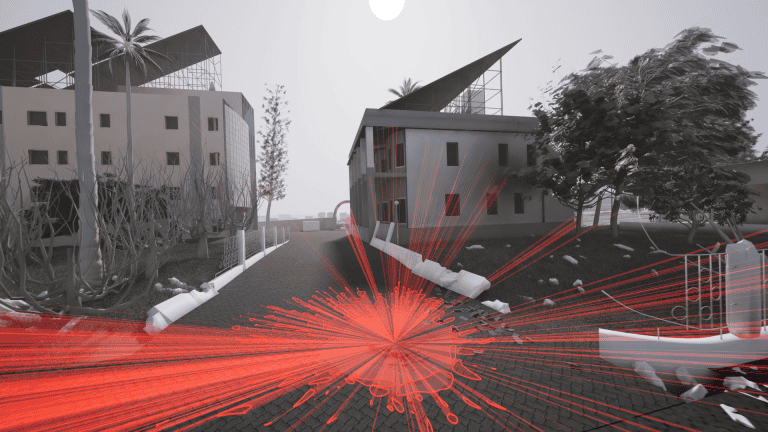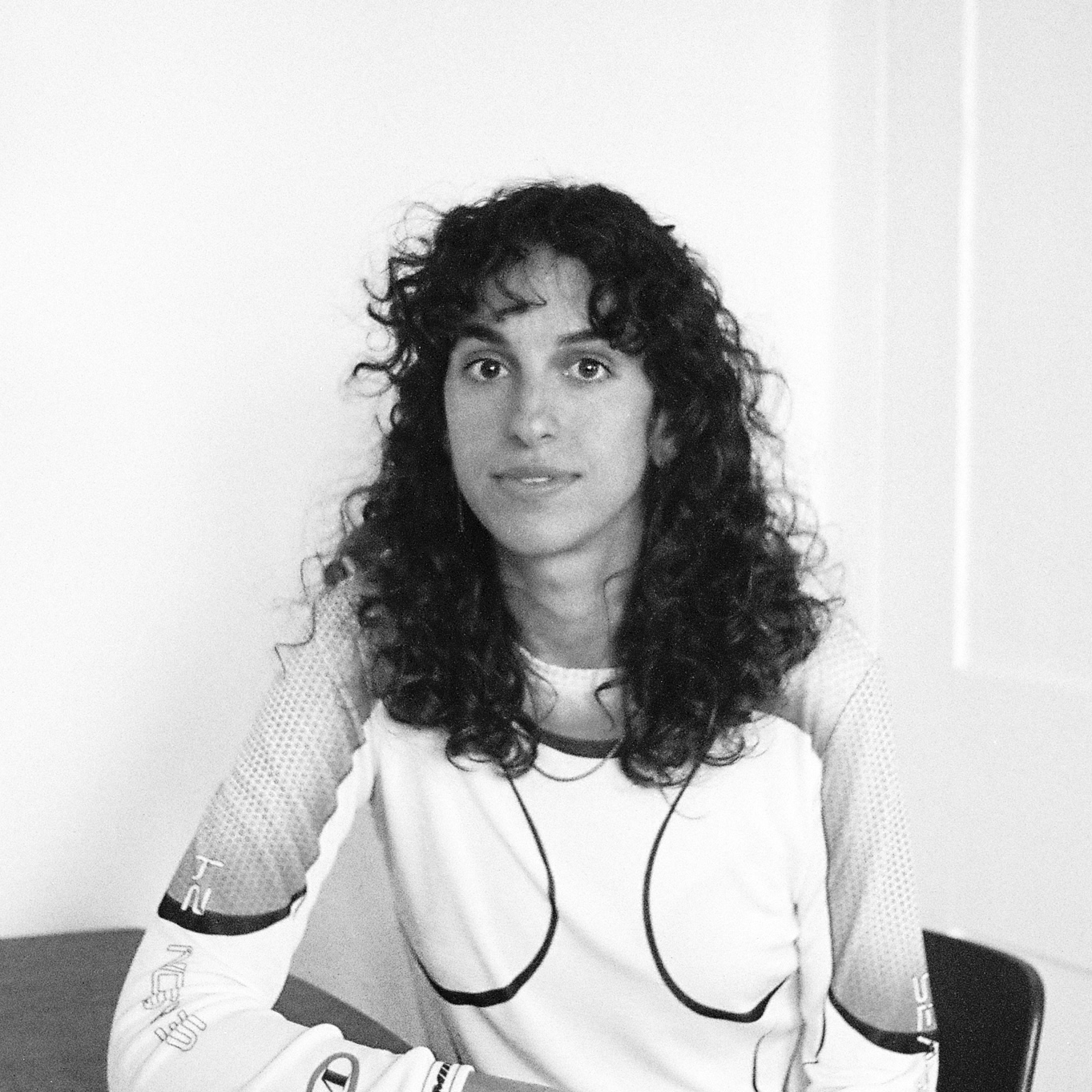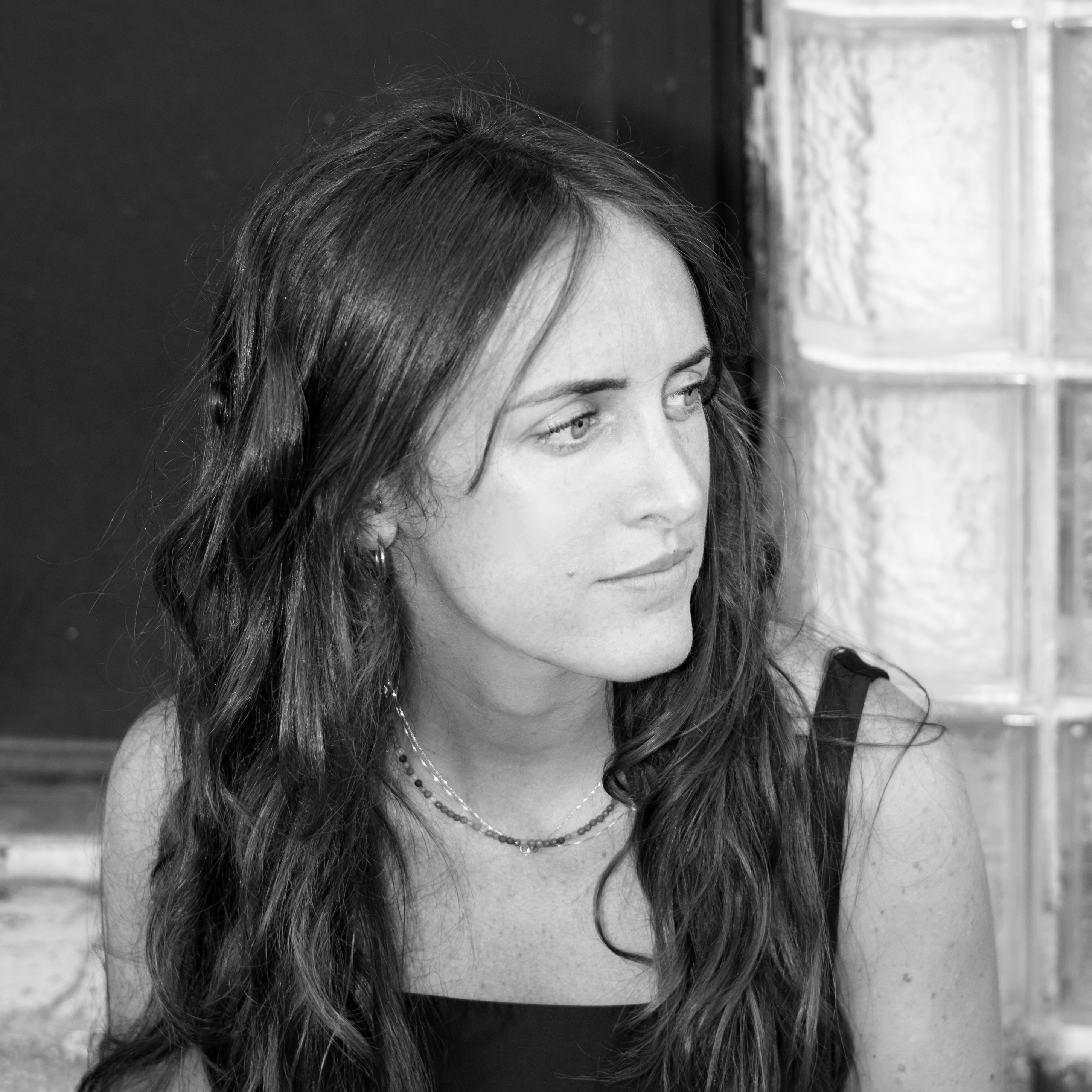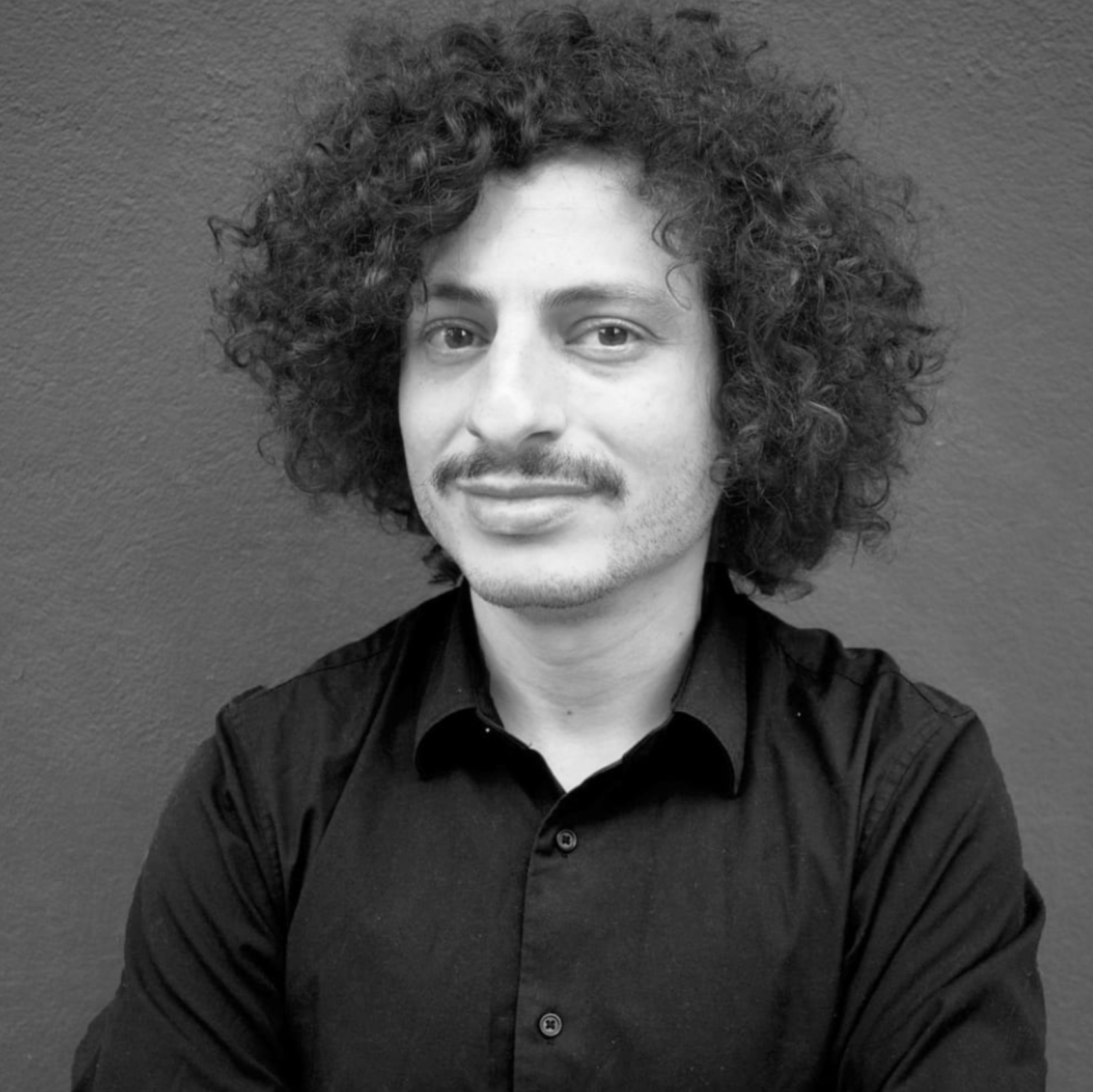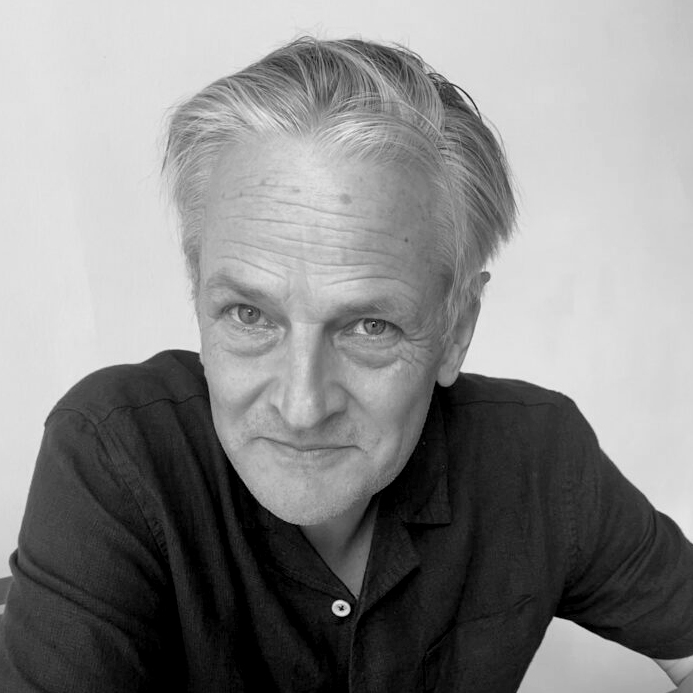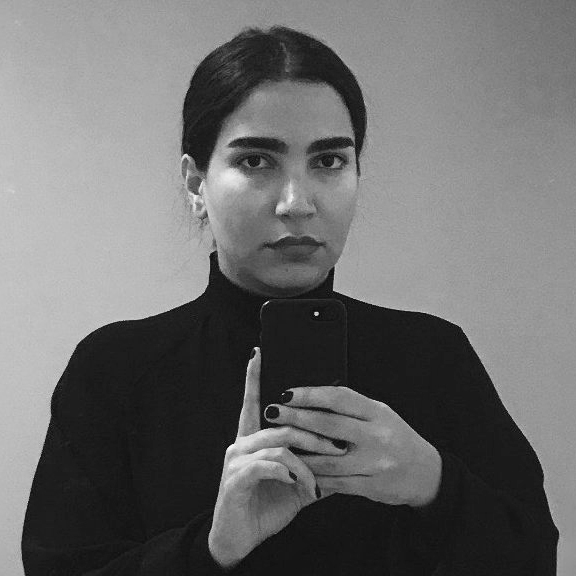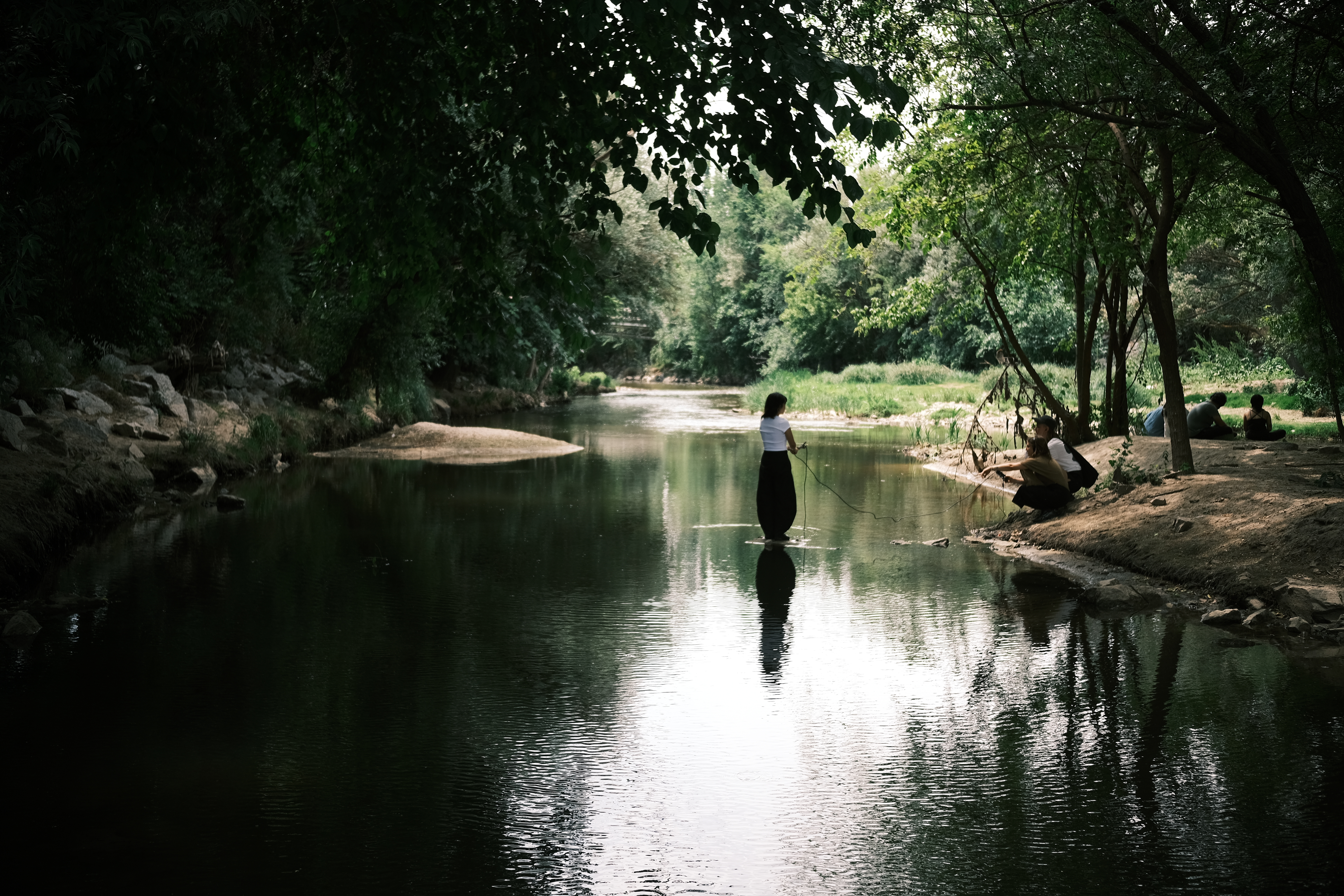4 DEGREES OF SIMULATION

GENERAL INFO
- LED BY
-
Julia Nueno Guitart — Forensic Architecture
- GUEST SPEAKERS
-
Matthew Fuller, Lucia Rebolino, Farzin Lotfi-Jam, and Bahar Noorizadeh
- DATES
-
Mondays, from November 3rd to November 24th, 2025
- TIME
-
6:00 – 8:00 PM (CEST)
- FORMAT
-
4 online sessions via Zoom
- LANGUAGE
-
English
- FULL TUITION
-
€ 250
- DISCOUNT
-
20% for students & IPS alumni
ABOUT
What connects the tracking of a single body reduced to lines as it moves through a stadium crowd, the rainfall sensors scattered across a river basin anticipating the arrival of monsoon floods, and the satellite images of crop fields triggering shifts in global wheat prices as war breaks out on the horizon? In each case, the tools used to sense, measure, and predict do more than represent the world — they determine its unfolding.
4 DEGREES OF SIMULATION
This practice-led seminar explores sensing as a political and contested process of knowledge production. Across the sessions, artists, curators, and researchers will share the tools and methods they use to examine how modelling and simulation not only structure what is possible in the world, but also how these become modes of investigation and political intervention.
At stake in these practices is not only how the world is seen, but what can be seen — and by whom. Perception is shaped by the techniques and infrastructures that govern visibility and intelligibility: what appears and what is hidden, what is amplified or ignored, what is legible as knowledge and what is dismissed as noise. In turn, these divisions define whose lives are recognised, which claims are heard, and which futures can be imagined or acted upon. In this sense, the politics of sensing is inseparable from the politics of recognition, access, and power — what Jaques Rancière describes as the distribution of the sensible.
Each guest will guide us through the digital and technical environments where their practice takes place. Over four sessions, we will explore how modelling and simulation participate in organising the field of the perceptible and, in doing so, the field of the political. These practices, while distinct, share a concern with how sensing is mobilised: as a means of producing evidence, governing bodies, managing risk, or imagining futures that can interrogate our present. Whether tracing violence through counter-forensics, shaping perception through live computation, simulating planetary collapse, or animating speculative economies, each session examines how tools designed to represent reality also produce it — and how they might be repurposed as instruments of inquiry, and collective imagination.
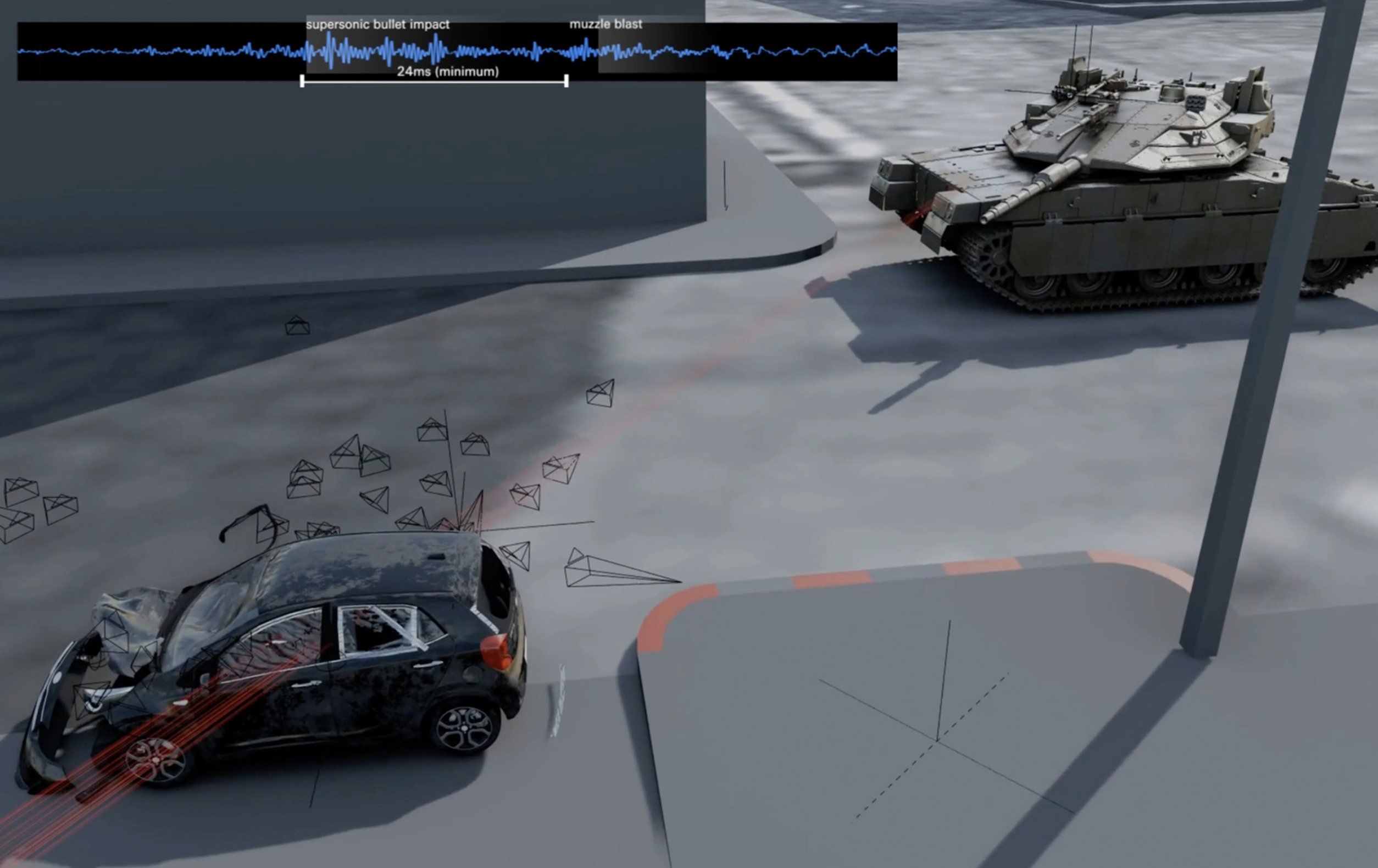
Digital reconstruction of the Hind Rajab massacre in Gaza - Forensic Architecture 2024
SESSIONS
Session I - Introduction: Investigative Aesthetics
03 / 11 / 2025
With Júlia Nueno and Matthew Fuller
The first session introduces investigative aesthetics, developed by Matthew Fuller and Eyal Weizman, which combines artistic and scientific modes of sensing to produce facts and interpret reality. Fuller will outline how aesthetics operate as an epistemological practice, bringing together artistic, scientific, and technical methods to interrogate knowledge production. He will show how investigative practices mobilise sense and sense-making —images, models, maps, and data—as tools of inquiry that intervene in infrastructures of power and visibility. As a case study, Júlia will present her reconstruction of AI targeting systems in Gaza, showing how computational violence becomes legible through spatial traces and counter-forensic techniques.
Session II - Climate: Modelling Uncertainty
10 / 11 / 2025
With Lucia Rebolino
Climate modelling and electromagnetic sensing, central to Rebolino’s practice, are framed as aesthetic and political operations. Climate systems are not simply observed but modelled, parameterised, and simulated through infrastructures such as satellites, spectrum allocation, and predictive networks. This session examines how data becomes visible, which uncertainties are tolerated or erased, and how parameters like frequency, resolution, and noise encode geopolitical power. Rebolino introduces spatial computing to interrogate how environmental risk is forecasted, collapse imagined, and climate framed as both governance object and site of struggle. Modelling emerges not only as science but as a practice organising planetary conditions.
Session III – Body: Politics of Real Time
17 / 11 / 2025
With Farzin Lotfi-Jam
From medical imaging and biometric scanning to predictive policing and military targeting, real-time systems prioritise speed, resolution, and responsiveness—redefining how the body is sensed, simulated, and governed. Drawing on his research at the Realtime Urbanism Lab, Farzin examines real-time as both a design logic and a political technology. Through case studies of digital twins, synthetic populations, and live simulations, participants will reflect on how the body is continuously processed by infrastructures of prediction—and what it means to inhabit a world that is always “in computation”.
Session IV – Market: Speculation and the Politics of Imagination
24 / 11 / 2025
With Bahar Noorizadeh
Speculation, in Bahar Noorizadeh’s work, is both a financial practice and a political, imaginative act. Her films trace how economies are imagined—from the technological optimism of cybernetic socialism to the algorithmic abstraction of finance capitalism. Through screenings and discussion, participants will explore speculative aesthetics, particularly animation, as a way to unsettle dominant narratives and model alternative imaginaries. For Noorizadeh, speculation is never neutral: it reveals the forces shaping the present while opening space to rethink historical justice, economic life, and futurity. Speculation then becomes both a lens of critique and a method of invention.
BIBLIOGRAPHY
-
01.
Farocki, Harun. “Serious Games.” NECSUS: European Journal of Media Studies 3, no. 2 (2014): 89–97.
-
02.
Fuller, Matthew, and Eyal Weizman. Investigative Aesthetics: Conflicts and Commons in the Politics of Truth. London: Verso, 2021. Chapter 1
-
03.
Lotfi-Jam, Farzin. “Infrastructures of Urban Simulation: Digital Twins, Virtual Humans and Synthetic Populations.” In The Routledge Handbook of Architecture, Urban Space and Politics, Volume I, edited by Nikolina Bobic and Farzaneh Haghighi, 1st ed. London: Routledge, 2022.
-
04.
Nueno Guitart, Júlia. “The Target Factory.” Verso Blog, 30 September 2024.
-
05.
Rebolino, Lucia. “Unpredictable Atmosphere.” Spatial Computing, e‑flux Architecture, June 18, 2024.
-
06.
Zhang, Gary Zhexi. “When Protest Is Another Kind of Performance.” ArtReview, February 28, 2025.
FACULTY
-
Júlia Nueno Guitart

Júlia Nueno Guitart is a researcher and engineer. Her work explores the computational systems that organise life and the spaces we inhabit, developing ways to interrogate and intervene with and through them. She is a member of the Forensic Architecture team and a PhD candidate at the Centre for Research Architecture, Goldsmiths, University of London, where she also teaches on the MA programme. She has collaborated with delivery couriers in London and housing organisers in Barcelona to co-design digital tools for worker organisation and tenant resistance, and previously worked at Airwars on civilian casualty monitoring. She is the editor of the forthcoming Genocidios. Una lectura forense (Galaxia Gutenberg, 2025). Her writing has appeared in The Guardian, Der Spiegel, VICENews, Springerin, FabrikZeitung, VersoBlog, Catalunya Plural, and El Salto Diario. http://julianueno.xyz/
-
Lucia Rebolino

Lucia Rebolino is an architect and computational designer, weaving science and art into counter-cartography, data, and web-based aesthetics. She is a researcher with Forensic Architecture in London. Her work on weather and prediction models has been featured in e-flux Architecture and exhibited at the 2025 Venice Architecture Biennale. Lucia has lectured at Columbia University, the AA, TU Delft, and ETH Zurich, among other cultural and academic institutions. Previously, she was a Teaching Associate in the Master of Science in Computational Design Practices at Columbia GSAPP, where she also collaborated with the Center for Spatial Research in New York, exploring how computational methods can mediate across different design practices. https://luciarebolino.com/
-
Farzin Lotfi-Jam

Farzin Lotfi-Jam is Assistant Professor of Architecture at Cornell University’s College of Architecture, Art and Planning, where he directs the Realtime Urbanism Lab, and Director of Farzin Farzin, an interdisciplinary design studio spanning architecture, urbanism, computation, and media. His research-based projects explore the politics of technology and cities, from modelling smart city control systems to spatialising the cultural logics of new media. His work has been exhibited internationally at the Venice Architecture Biennale, MAXXI, Storefront for Art and Architecture, the Oslo Triennale, the Seoul and Sharjah Biennials, and The Shed, where he was an inaugural Open Call Artist. He is co-author of Modern Management Methods (Columbia UP), on architecture and systems of valuation. http://farzinfarzin.com/
-
Matthew Fuller

Matthew Fuller is a cultural theorist specialising in art, technology, politics, and aesthetics. He is Professor of Cultural Studies at Goldsmiths, University of London, and a founding editor of Computational Culture. His work, drawing on philosophy, critical theory, and experimental practice, examines how power, perception, and knowledge are encoded in software, media environments, and everyday life. A key figure in software studies, he has analyising the material and semiotic operations of code and networks. His publications include Media Ecologies (2005), Software Studies: A Lexicon (2008), Evil Media (2012, with Andrew Goffey), How to Be a Geek (2017), How to Sleep (2018), Bleak Joys (2019, with Olga Goriunova), and Investigative Aesthetics (2021, with Eyal Weizman).
-
Bahar Noorizadeh

Bahar Noorizadeh is an artist, writer, and filmmaker whose work examines the entanglements of art and capitalism. She explores how imagination and speculation intertwine within economic and cultural systems, with research spanning the histories of economics, cybernetic socialism, and activist strategies against the financialisation of life and space. She is the founder of Weird Economies, a collaborative project tracing alternative economic imaginaries. Her work has been presented at the German Pavilion, Venice Architecture Biennale (2021); Taipei Biennial (2023); Tate Modern; Transmediale; DIS; Berlinale Forum Expanded; and Geneva Biennale of the Moving Image. She has contributed to e-flux Architecture, Journal of Visual Culture, and Sternberg Press, and holds a PhD in Art from Goldsmiths University https://baharnoorizadeh.com/
